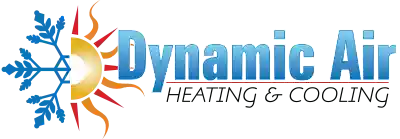Inefficient HVAC systems cost NJ residents a lot of money. Properly maintaining a HVAC system, on the other hand, saves residents anywhere from 5 to 40 percent on their energy costs annually, according to recent studies. If your energy bills seem higher than normal, it might be time to look into HVAC repair.
How Do HVAC Systems Impact Energy Bills?
In New Jersey, the winters are bitterly cold and the summers are blazing hot. This means that your HVAC system works hard year round to keep you comfortable, using a significant amount of energy. You need your HVAC system functioning smoothly, not only for your comfort but for your wallet. When your system works harder than it needs to, it uses more energy, raising your energy bill.
Maintenance And Repair Reduce Unnecessary Costs
Maintaining your HVAC system is the easiest way to avoid skyrocketing energy bills. Even comparatively inefficient, older HVAC models function better when properly maintained. Most of us wait until our HVAC system stops working to call a HVAC repair company in NJ. While understandable, keeping up on maintenance proves more effective at reducing energy costs. Ask your local HVAC company to show you how to recognize a problem before it gets out of hand.
Common Causes Of HVAC Inefficiency
Many parts comprise your HVAC system. Keeping those parts functioning smoothly keeps your HVAC system operating at peak efficiency. Here are some of the common causes and how to fix them.
1. Thermostat Control
Thermostat control problems include improperly adjusted thermostat settings, continuously running fans, poorly installed resistors, a lack of nighttime setback or set-up, and simply accounting for unoccupied periods. Fixing these issues saves you up to 40%.
For instance, if you and your partner work from 9-5 and the kids are at school during the day, you don’t need to set your heat at the same temperature during this time as when you are home. Check your thermostat settings to make sure your HVAC system is running the way it should. Call your HVAC provider with any questions.
2. Dirty Furnace Filter
If you were not aware that your furnace has filters, you are not alone. Plenty of homeowners don’t know that their furnace filter requires changing at least once a year, although every few months is preferable. Not only does a dirty filter reduce efficiency, it also pollutes your home. This is something you can do yourself, or you can call a HVAC company in NJ.
3. Compromised Parts
Filters are not the only places where dirt and other elements accumulate. Mineral deposits that develop on your centrifugal chiller tube adds a 15% increase to your energy bill, and in some case as high as 35%. A leak in your compressor costs you 6 to 14%. If your HVAC system’s economizer gets damaged or stops functioning properly, your HVAC system can’t function efficiently. This costs you anywhere from a 14 to 40% increase in your energy bill.
Luckily, your NJ HVAC technician knows what to look for and how to fix it. Regular inspections prevent expensive repairs and lofty energy bills down the road.
Many small parts make up your HVAC system. While some things, like filters, do not require professional assistance, others do. Don’t be afraid to contact a reliable HVAC company to find out how you can improve your system’s efficiency.
4. Environmental Factors
Sometimes the issue is not your HVAC system. Even the most efficient HVAC can’t make up for a poor insulation job. Poorly insulated homes lose hot and cool air, forcing HVAC systems to work twice as hard. This costs you money and overworks your system, leading to more problems.
Something as simple as a blocked vent also contributes to heating bills. Make sure no furniture, rugs, or other objects block vents and radiators. This is especially important in homes with baseboard or radiator heating. Not only does this impede air flow, it also poses a fire risk.
Take control of your energy savings, we’re readily available to assist you with any HVAC repair and services you may need.

